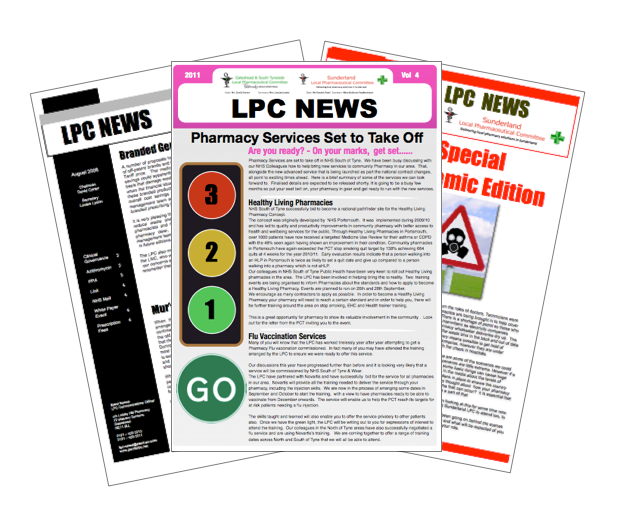
The PSNC have issued the following statement:
-------
High Court rules pharmacy funding cut was not unlawfulMay 18, 2017
The funding reduction imposed on community pharmacies on 20th October 2016 and the consultation relating to it were not unlawful and cannot be quashed, the High Court has ruled.
PSNC and the NPA had both brought Judicial Reviews of the Secretary of State’s decision to impose the funding reduction. The cases were heard in a joint hearing in March.
Mr. Justice Collins, who heard the cases, has concluded that the Secretary of State’s actions and decisions were not unlawful. His judgment was handed down at 10:30am on Thursday 18th May.
The Judge considered the case in the context of the need to find £22bn in savings across the NHS, and found that: “The need for saving of money was inevitably driving the decision and careful consideration had been given to the possibly damaging effects.”
Mr. Justice Collins said: “I have with some regret concluded that I cannot properly quash the decision”.
Despite ruling in favour of the Secretary of State, Mr. Justice Collins was critical of the Department of Health’s failure to provide key analysis to PSNC, calling it “regrettable” and “unjustified”.
“There is undoubtedly blame to be placed on the Department for failing to provide the analysis leading to 15% and for not producing as soon as it was known that proceedings were contemplated all the material which JH [Jeannette Howe, Department of Health] has now produced,” he said.
The decision means the changes made in the December 2016 Drug Tariff, which implemented a funding cut and introduced a new Single Activity Fee, among other changes, will remain in force. Funding for 2016/17 was set at £2.687bn and for 2017/18 at £2.592bn.
Further information on the judgment, along with FAQs, will be available to download shortly.
Statement from Sue Sharpe, PSNC Chief Executive
“PSNC is disappointed with this result. Our lawyers and QC felt that we had a good case; and there are serious criticisms of the consultation process and of the Department of Health made in the judgment. Unfortunately, the fact that the Secretary of State has very wide powers to decide what is relevant to his decisions, coupled with the Department withdrawing reliance on analysis they had undertaken means that we failed to establish that the inadequacies in the process were sufficient to make the process unlawful.
A critical point in the case was the Department of Health’s conduct regarding its analysis of Companies House data which led to a figure of 15% operating margin for community pharmacies. PSNC first saw this figure when the impact assessment was published alongside the imposition on 20th October 2016. The report has since been discredited by experts at PricewaterhouseCoopers. Extraordinarily, although the Minister laid emphasis on this study when announcing the imposition in Parliament and it was repeatedly used in briefing papers disclosed in the litigation, counsel for the Department of Health stated at the hearing that no reliance was placed on it.
The judgment also refers to an inaccurate letter sent to the Prime Minister in August 2016, and to the failure of the Department to disclose information immediately after it was clear that proceedings were being considered.
A mass of information regarding the policy and thinking behind the funding cuts was disclosed through the legal proceedings allowing us, at last, to see the masterplan behind the 17th December 2015 letter which was devised in mid-2015 and which the Department denied existed. Had we seen this when the letter was published, we would have had the opportunity to interrogate and challenge the Department’s thinking, and the consultation period would have been very different. But it was withheld from us.
The Judge noted the ‘hardships’ that would inevitably be suffered with any reduction in remuneration. We know that the impact on community pharmacies and their patients could be severe in some cases, and we will continue to highlight the impact that this will have on patients, as well as on wider health and social care services and livelihoods. As the Judge noted, there is a real concern about the unintended consequences of the imposition in increasing pressure on GPs and A&E departments.
On the issue of pharmacy closures, the Judge found that these were a recognised and desired consequence but not the specific intention of the funding cut, noting comments made by the Chief Pharmaceutical Officer about there being too many pharmacies. PSNC could not and still cannot predict the number of closures that will result from the changes – as we all know, community pharmacy contractors, as any business owners, will do anything they can to avoid closures and they will all seek to find ways to survive by reducing costs and services.
The Committee voted unanimously in favour of this legal action to challenge the 20th October 2016 funding imposition given the issues at stake and the lack of a fair consultation with us. Our priority now is to ensure that the valuable contribution that community pharmacies make to local communities and the NHS is never again disregarded as it so clearly was in the process leading up to the letter of 17th December 2015.”
 RSS Feed
RSS Feed
